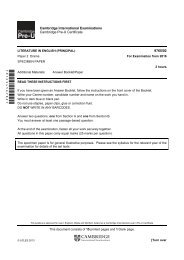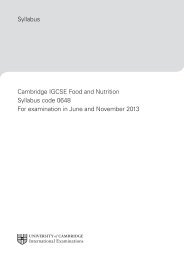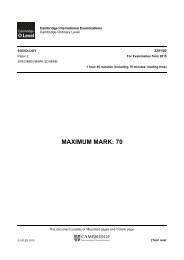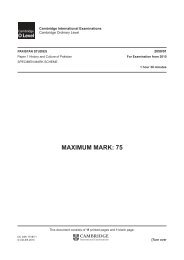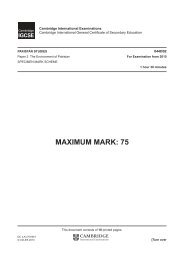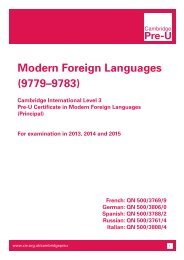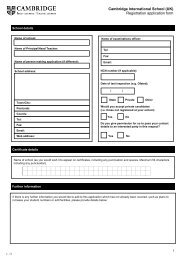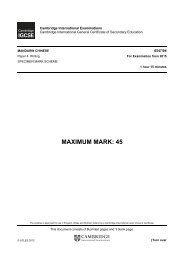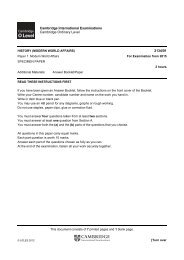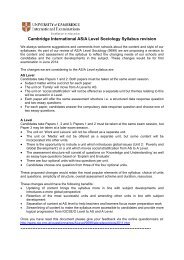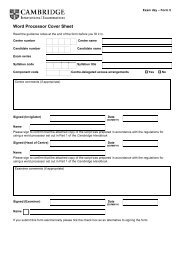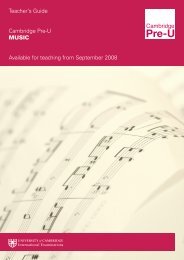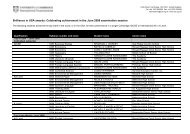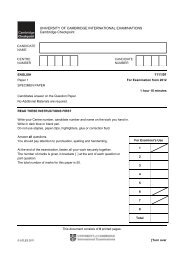Cambridge Pre-U Syllabus - Cambridge International Examinations
Cambridge Pre-U Syllabus - Cambridge International Examinations
Cambridge Pre-U Syllabus - Cambridge International Examinations
You also want an ePaper? Increase the reach of your titles
YUMPU automatically turns print PDFs into web optimized ePapers that Google loves.
10<br />
Description of Papers<br />
<strong>Cambridge</strong> <strong>Pre</strong>-U Draft<br />
Contexts for questions on written papers<br />
Questions on the written papers will, where possible, be set in novel contexts featuring various applications<br />
of Biology, some of which will be unfamiliar. Medicine, veterinary science, pharmacology, crop and livestock<br />
production, conservation, forensics, genomics and proteomics are some of the areas that may provide<br />
contexts for questions. Some questions may be set in the context of recent research. Historical and ethical<br />
scenarios will also be used. Familiar practicals from within the syllabus and unfamiliar practicals will be used<br />
as contexts for questions that candidates are expected to answer based on the practical skills that they have<br />
developed.<br />
Component 1: Structured<br />
Written Paper, 100 marks, 2½ hours.<br />
All questions are compulsory and will be based on the whole of the syllabus content.<br />
This paper will consist of two sections:<br />
• Section A (20 marks) This will consist of 20 objective questions. These may be multiple choice<br />
questions of various kinds, where candidates choose one of four or more given statements which could<br />
be correct, or structured questions which require a single word answer.<br />
• Section B (80 marks). This will consist of a number of compulsory structured short-answer questions.<br />
Component 2: Long-Answer<br />
Written Paper, 120 marks, 2¾ hours<br />
This paper will consist of three sections:<br />
• Section A: Data Analysis and Planning Task (60 marks). This section will include tasks to assess the<br />
higher-order skills of planning, analysing, making conclusions and evaluating. The section will have a<br />
variable number of questions which will require candidates to solve problems. Questions may ask them<br />
to interpret data given in a table, chart or graph. Candidates may be expected to plot, measure and<br />
interpret graphs. The Planning Task will involve candidates writing a highly structured plan drawing on<br />
the practical skills they have developed during their course. Candidates will be advised to spend no<br />
more than 65 minutes on Section A.<br />
• Section B: Case Study (30 marks). There will be several structured questions relating to a passage<br />
which may be taken or adapted from a source such as a scientific journal or book and which will not<br />
necessarily relate directly to the content of the syllabus. Questions may ask candidates to explain the<br />
meaning of terms used in the passage, rephrase parts of the passage, analyse data in the passage,<br />
perform calculations and draw conclusions from what they have read. Candidates will be advised to<br />
spend no more than 50 minutes on this section.



